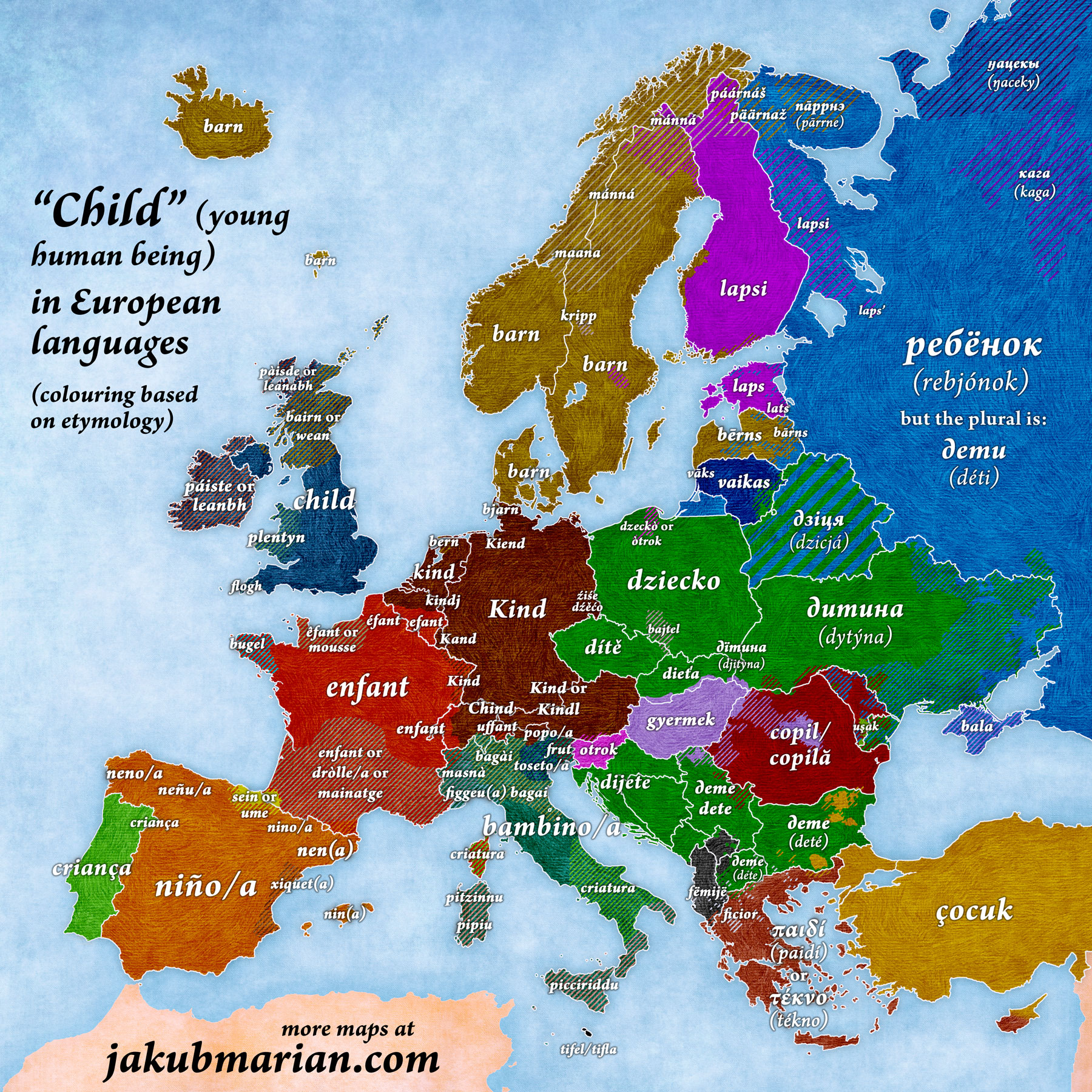The map below shows the word “child” (in the sense of a “young human being”) translated into various European languages. Words that share a common origin are represented by the same colour on the map (but due to a surprisingly diverse linguistic situation, there are so many colours that some of them may be hard to distinguish):

Some of similarities that are not coincidental are: North Germanic barn, Scots bairn and Latvian bērns and several Sami expressions all ultimately derive from Proto-Indo-European *bʰer-, meaning “to bear, to carry”, and are related to the English word “bear” (as in “to bear a child”).
Irish páiste and Scottish Gaelic pàisde are possibly related to Greek παιδί (from Old French page, via Latin).
Portuguese criança and Neapolitan and Corsican criatura are derived from Latin creatura, “creature”.
 Tip: Are you a non-native English speaker? I have just finished creating a
Tip: Are you a non-native English speaker? I have just finished creating a  Web App
Web App
